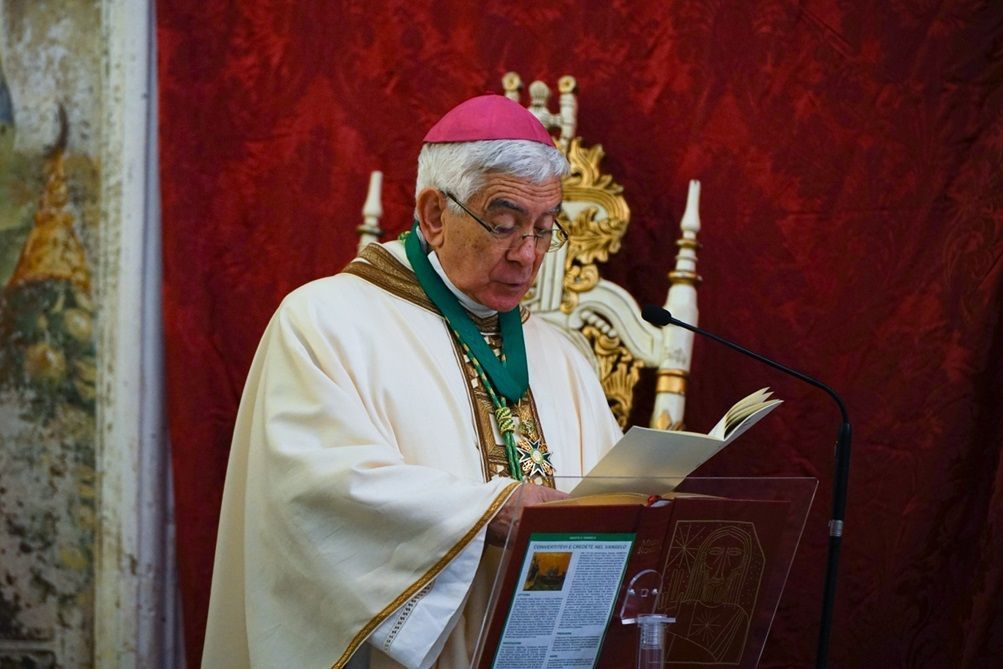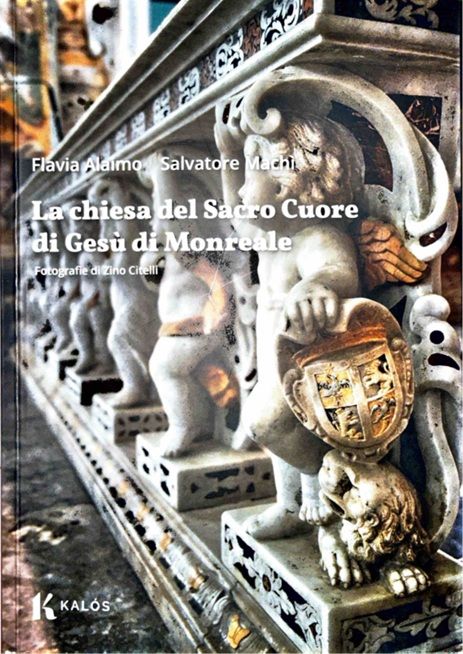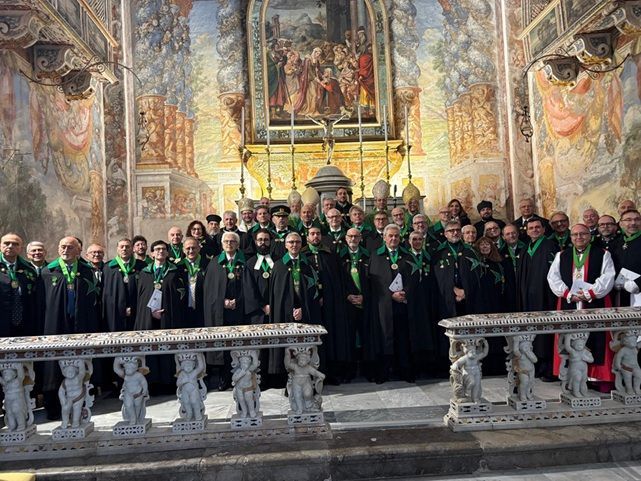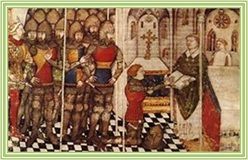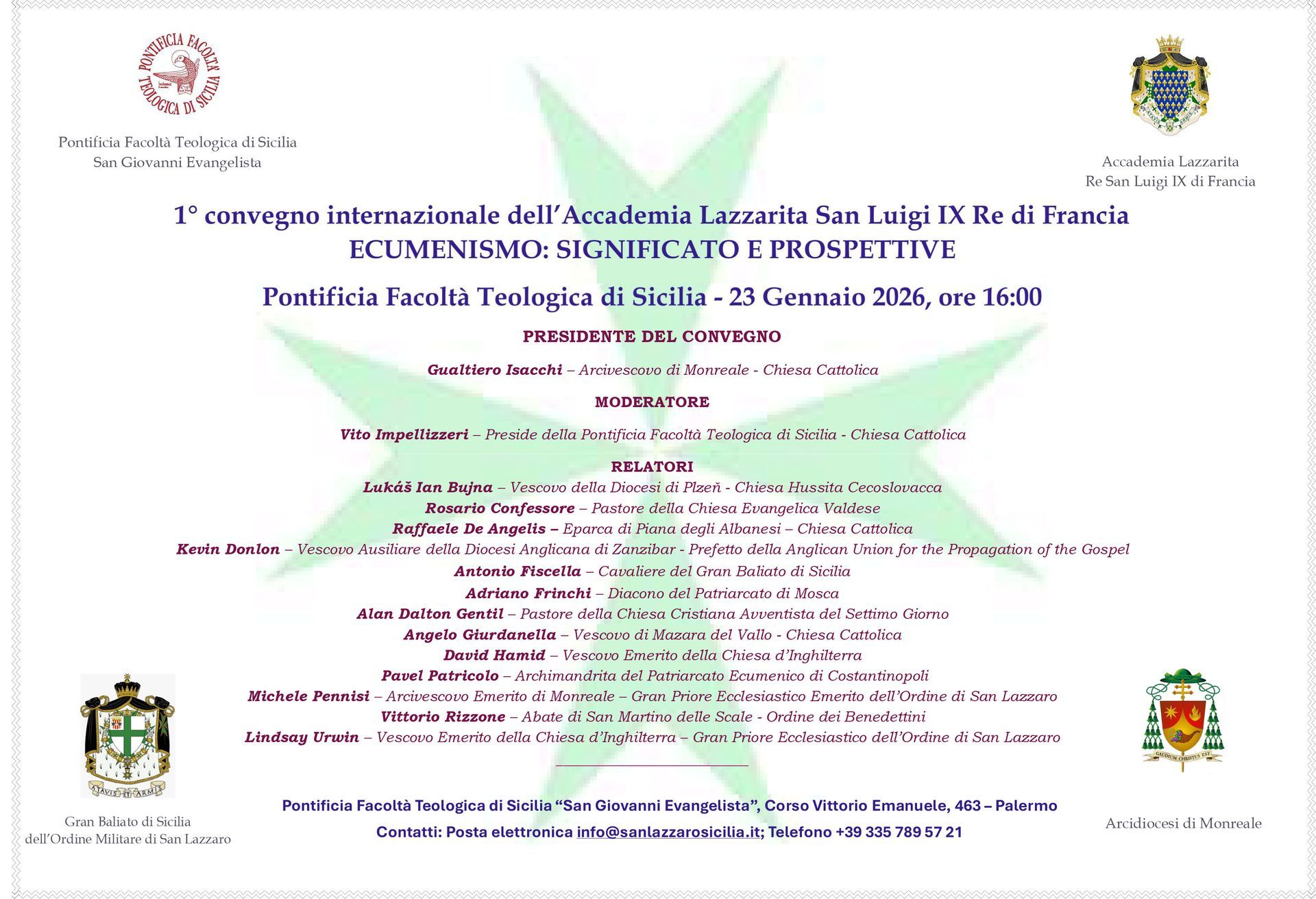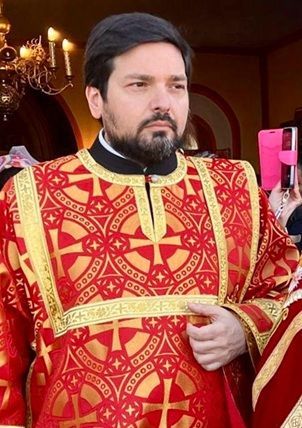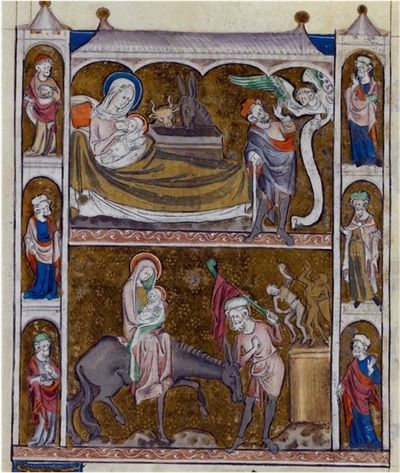MESSAGGIO DEL GRAN PRIORE ECCLESIASTICO IN OCCASIONE DEL PELLEGRINAGGIO PAOLINO DELL’ORDINE DEL FEBBRAIO 2024
MESSAGGIO DEL GRAN PRIORE ECCLESIASTICO IN OCCASIONE DEL PELLEGRINAGGIO PAOLINO DELL’ORDINE DEL FEBBRAIO 2024
Inizierà il prossimo 8 febbraio 2024 il Pellegrinaggio internazionale paolino dell’Ordine di San Lazzaro a Malta e l’incontro tra tutti i capi giurisdizione.
Il Gran Priore Ecclesiastico, Mons. Michele Pennisi, GCLJ, ha inviato a tutti i membri dell’Ordine il seguente messaggio.
Come membri dell’Ordine di San Lazzaro di Gerusalemme stiamo realizzando questo pellegrinaggio sulle orme di San Paolo.
Il naufragio di San Paolo rappresenta per Malta, che lo celebra il 10 febbraio, l’inizio del cristianesimo. Sono diversi i luoghi che ricordano la permanenza dell’Apostolo delle genti, approdato intorno al 60 d.C. in seguito al naufragio della nave che lo stava portando a Roma, come racconta il capitolo 28 degli Atti degli Apostoli: “Gli indigeni ci trattarono con rara umanità; ci accolsero tutti attorno a un gran fuoco, che avevano acceso perché era sopraggiunta la pioggia ed era freddo”, scrive Luca, che narra anche della grande stima che i maltesi maturarono ben presto nei confronti di Paolo. Dalla narrazione degli Atti degli Apostoli si può ipotizzare che Paolo si trasferì poi nell’odierna Rabat, la capitale dell’isola. Nella città si trova il luogo dove l'Apostolo delle genti avrebbe abitato nei tre mesi di permanenza sull’isola, insieme ai compagni Luca, Aristarco, Trofimo e altri: si tratta di una grotta trasformata in cappella, la Grotta di San Paolo, che, nel corso dei secoli, è divenuta meta di pellegrinaggio, luogo di culto e di preghiera.
Noi siamo chiamati a ripercorrere l’itinerario spirituale di Paolo che per l’iniziativa benevola della pura grazia di Dio da fariseo zelante e persecutore della Chiesa di Dio è diventato discepolo di Gesù Cristo e l’apostolo delle Genti.
La vocazione di Paolo, che esprime l’iniziativa divina attraverso l’apparizione di Cristo Risorto, è seguita dalla sua conversione, che esprime la sua risposta libera, che gli ha fatto rigettare il sistema di valori basati sulla giustizia che deriva dall’osservanza delle opere della legge ebraica per aderire alla persona di Cristo, basata sulla fede” che opera per mezzo della carità” (Galati 5:6).
San Paolo sintetizza la sua posizione affermando: Sono stato crocifisso con Cristo, e vivo, non più io, ma Cristo vive in me. Questa vita nella carne, io la vivo nella fede del Figlio di Dio, che mi ha amato ed ha dato sé stesso per me” (Galati 2:20-21).
All’itinerario spirituale di Paolo si deve ispirare anche il nostro cammino di fede.
Nel brano della lettera a Tito (Tito3:3-7) San Paolo, dopo aver descritto lo stile di vita che tutti i fedeli avevano prima della loro conversione improntato alla malvagità, alla corruzione, alla disobbedienza a Dio, alla schiavitù alle varie passioni, ci da la buona notizia della manifestazione della bontà di Dio, Salvatore nostro, e il suo amore per gli uomini, E' proprio per questo amore che Dio interviene nella storia, con l'incarnazione del suo Figlio Gesù Cristo. Egli ci ha salvati, non per opere giuste da noi compiute, ma per la sua misericordia, Questa salvezza è avvenuta tramite l'acqua del battesimo, che ha rigenerato l'umanità grazie allo Spirito Santo che Dio ha effuso su di noi in abbondanza per mezzo di Gesù Cristo, affinché, giustificati per la sua grazia, diventassimo, nella speranza, eredi della vita eterna. È questa azione di Dio che ci ha resi giusti, altrimenti noi con le nostre forze non lo avremmo mai potuto essere. E' una giustificazione che ci apre a un futuro: mantenendo salda in noi la speranza di essere ammessi a partecipare della vita eterna.
Nel brano della lettera ai Romani (Romani 3:21-31) Paolo spiega che la giustizia di Dio è stata rivelata attraverso la fede in Gesù Cristo. Tutti gli uomini sono peccatori e non possono essere giustificati dalla legge, ma solo attraverso la fede in Gesù Cristo. La giustizia di Dio è disponibile a tutti coloro che credono in Gesù Cristo, indipendentemente dalla loro origine o status sociale.
Nella fede, l’uomo confida totalmente nel suo Creatore e Salvatore ed è così in comunione con lui. Dio stesso fa scaturire la fede suscitando tale fiducia con la sua parola creatrice. Poiché questo agire di Dio è una nuova creazione, essa riguarda tutte le dimensioni della persona e conduce a una vita nella speranza e nell’amore.
Il passo del Vangelo di oggi (Matteo 22:34-40) ci presenta un dibattito, tra Gesù e un “dottore della legge”, che pone la domanda su quale sia il comandamento principale. Dalla stessa domanda fatta da uno scriba Gesù racconta la parabola del Buon Samaritano (Luca 10:25-37) che ha dettato il tema della Settimana di preghiere per l’unità dei cristiani.
Nella risposta Gesù, da buon israelita, si rifà all’Antico Testamento, in cui è scritto:” Ascolta, Israele, tu amerai il Signore tuo Dio con tutto il cuore, con tutta l’anima e con tutte le tue forze.” (Deuteronomio 6:5) e, ancora:” Ama il prossimo tuo come te stesso” (Levitico 19:18); precetti che, nella sua risposta, il Maestro mostra strettamente uniti, in una logica che è la logica dell’amore, che anima tutto il rapporto tra l’uomo e Dio, e tra l’uomo e il suo prossimo.
E’ questa la novità che Gesù Cristo porta, una novità, che non abolisce la legge, ma la vivifica con un atteggiamento nuovo, che nasce dal cuore: l’amore, dono di Dio, che illumina ed avvolge ogni cosa, che abilita l’uomo a riamarlo e ad amare, in lui, ogni altro uomo, ispirando, di volta in volta, nelle diverse situazioni della vita, gesti di bontà e di solidarietà, senza che sia necessario formulare una miriade di precetti.
C’è, dunque, in sostanza, un unico comandamento dal quale ogni altro precetto prende forma, un comandamento che si esprime e si attua in due direzioni, tra loro complementari: quella verticale, dell’amore per Dio, il Primo in assoluto, e l’altra, orizzontale, verso il prossimo, che di Dio è immagine; tutto il resto, se non è riconducibile al comandamento dell’amore, è solo espressione della volontà di uomini, che vogliono dominare e asservire altri uomini.
A questo comandamento antico, Gesù aggiungerà una modalità nuova, quando, alla vigilia della sua morte, nel lungo discorso di addio dirà ai discepoli: “Questo è il mio comandamento: che vi amiate gli uni gli altri come io ho amato voi.” (Giovanni 15:12); la misura dell’amore di Cristo, è l’offerta della sua vita per la redenzione di tutti. Gesù dirà “Nessuno ha un amore più grande di questo, dare la vita per i suoi amici”. (Giovanni 15:13).
Noi troviamo la nostra comune identità cristiana nell’esperienza dell’amore di Dio con tutte le nostre facoltà (Giovanni 3: 16) e manifestiamo questa identità al mondo nella misura in cui ci amiamo gli uni gli altri (Giovanni 13: 35).
Siamo uniti, in Cristo dalla consapevolezza di essere amati da Dio e dal nostro comune amore per Dio e per il prossimo.
In questo pellegrinaggio sulle orme di san Paolo chiediamo al Signore di percorrere la via dell’ecumenismo come membra dell’unico corpo di Cristo (cfr. I Corinzi 12:12-27) realizzando la realtà più grande di tutte che è la carità (cfr.I Corinzi, 13:13).
+ Michele Pennisi, GCLJ, Arcivescovo Emerito di Monreale
Gran Priore Ecclesiastico dell’Ordine di San Lazzaro di Gerusalemme
MESSAGE FROM THE GRAND ECCLESIASTICAL PRIOR ON THE OCCASION OF THE PAULINE PILGRIMAGE OF THE ORDER IN FEBRUARY 2024
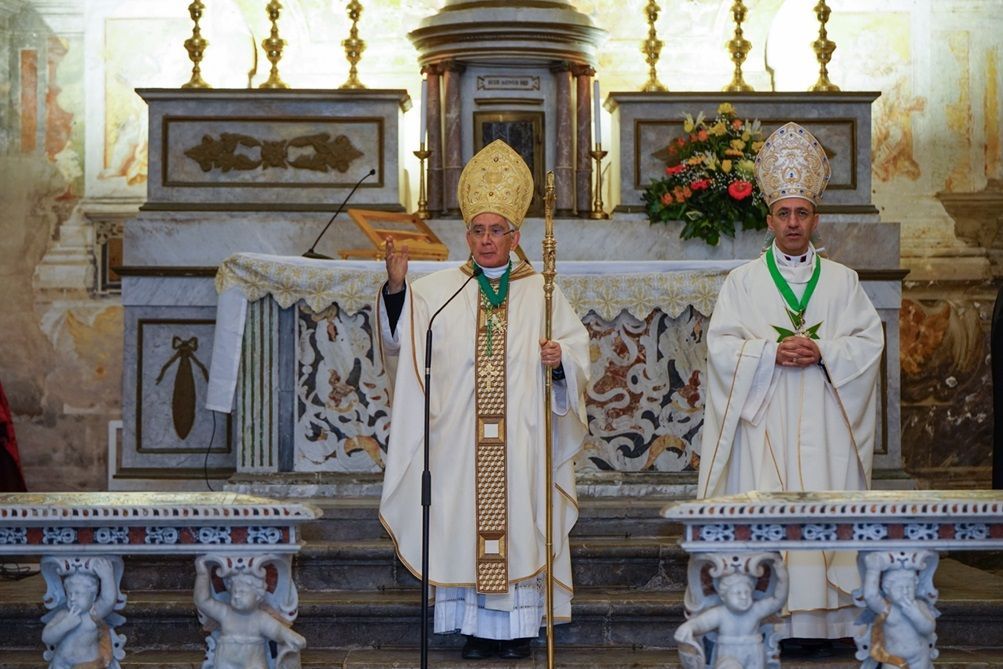
The Order of St. Lazarus' International Pauline Pilgrimage to Malta and the meeting of all the jurisdictional leaders will start on February 8, 2024.
The Grand Ecclesiastical Prior, Msgr. Michele Pennisi, GCLJ, sent the following message to all the members of the Order.
As members of the Order of St Lazarus of Jerusalem, we are making this pilgrimage in the footsteps of St Paul.
St Paul's shipwreck represents for Malta, which celebrates it on 10 February, the beginning of Christianity. There are several places that commemorate the stay of the Apostle of the Gentiles, who landed around 60 A.D. following the shipwreck of the ship that was taking him to Rome, as recounted in chapter 28 of the Acts of the Apostles: 'The natives treated us with rare humanity; they all welcomed us around a large fire, which they had lit because the rain had come and it was cold,' writes Luke, who also narrates the great esteem that the Maltese soon developed towards Paul. From the narrative of the Acts of the Apostles, it can be assumed that Paul later moved to what is now Rabat, the capital of the island. In the city there is the place where the Apostle of the Gentiles is said to have lived during his three-month stay on the island, together with his companions Luke, Aristarchus, Trophimus and others: it is a cave transformed into a chapel, the Grotto of St Paul, which, over the centuries, has become a place of pilgrimage, worship and prayer.
We are called to retrace the spiritual journey of Paul, who through the benevolent initiative of God's pure grace went from being a zealous Pharisee and persecutor of the Church of God to becoming a disciple of Jesus Christ and the Apostle of the Gentiles.
Paul's vocation, which expresses the divine initiative through the appearance of the Risen Christ, is followed by his conversion, which expresses his free response, which made him reject the value system based on the righteousness that comes from observing the works of the Jewish law in order to adhere to the person of Christ, based on faith "which works through charity" (Galatians 5:6).
St Paul summarises his position by stating: I have been crucified with Christ, and I live, no longer I, but Christ lives in me. This life in the flesh I live by faith in the Son of God, who loved me and gave himself for me' (Galatians 2:20-21).
Paul's spiritual journey should also inspire our journey of faith.
In the passage from the letter to Titus (Titus 3:3-7), St Paul, after describing the lifestyle that all the faithful had before their conversion marked by wickedness, corruption, disobedience to God, slavery to the various passions, gives us the good news of the manifestation of the goodness of God, our Saviour, and His love for mankind, It is precisely because of this love that God intervenes in history, with the incarnation of His Son Jesus Christ. He saved us, not by any righteous works we performed, but by his mercy, This salvation came about through the water of baptism, which regenerated humanity through the Holy Spirit that God poured out upon us in abundance through Jesus Christ, so that, justified by his grace, we might become, in hope, heirs of eternal life. It is this action of God that has made us just, otherwise we in our own strength could never have been justified. It is a justification that opens us up to a future: holding firm in us the hope of being admitted to share in eternal life.
In the passage from the letter to the Romans (Romans 3:21-31) Paul explains that the righteousness of God has been revealed through faith in Jesus Christ. All men are sinners and cannot be justified by the law, but only through faith in Jesus Christ. The righteousness of God is available to all who believe in Jesus Christ, regardless of their origin or social status.
In faith, man trusts totally in his Creator and Saviour and is thus in communion with him. God himself gives rise to faith by arousing such trust with his creative word. Since this action of God is a new creation, it affects all dimensions of the person and leads to a life in hope and love.
Today's Gospel passage (Matthew 22:34-40) presents us with a debate, between Jesus and a "doctor of the law", which asks the question which is the main commandment. From the same question asked by a scribe, Jesus relates the parable of the Good Samaritan (Luke 10:25-37) that dictated the theme of the Week of Prayer for Christian Unity.
In his reply, Jesus, as a good Israelite, refers to the Old Testament, where it is written: "Hear, O Israel, you shall love the Lord your God with all your heart and with all your soul and with all your strength." (Deuteronomy 6:5) and, again:" Love your neighbour as yourself" (Leviticus 19:18); precepts that, in his reply, the Master shows closely united, in a logic that is the logic of love, which animates the whole relationship between man and God, and between man and his neighbour.
This is the novelty that Jesus Christ brings, a novelty, which does not abolish the law, but enlivens it with a new attitude, which is born from the heart: love, God's gift, which enlightens and envelops everything, which enables man to love and to love, in him, every other man, inspiring, from time to time, in the different situations of life, gestures of goodness and solidarity, without the need to formulate a myriad of precepts.
There is, therefore, in essence, a single commandment from which every other precept takes shape, a commandment that is expressed and implemented in two directions, complementary to each other: the vertical one, of love for God, the First in absolute, and the other, horizontal, towards one's neighbour, who is the image of God; all the rest, if it cannot be traced back to the commandment of love, is only the expression of the will of men, who want to dominate and enslave other men.
To this ancient commandment, Jesus will add a new way, when, on the eve of his death, he will say to his disciples in his long farewell discourse: "This is my commandment: that you love one another as I have loved you." (John 15:12); the measure of Christ's love is the offering of his life for the redemption of all. Jesus will say "No one has greater love than this, to lay down one's life for one's friends". (John 15:13).
We find our common Christian identity in the experience of God's love with all our faculties (John 3: 16) and we manifest this identity to the world to the extent that we love one another (John 13: 35).
We are united in Christ by the knowledge that we are loved by God and by our common love for God and neighbour.
On this pilgrimage in the footsteps of St Paul, we ask the Lord to walk the path of ecumenism as members of the one body of Christ (cf. I Corinthians 12:12-27), realising the greatest reality of all, which is charity (cf. I Corinthians 13:13).
+ Michele Pennisi, GCLJ, Archbishop Emeritus of Monreale
Grand Ecclesiastical Prior of the Order of St. Lazarus of Jerusalem

